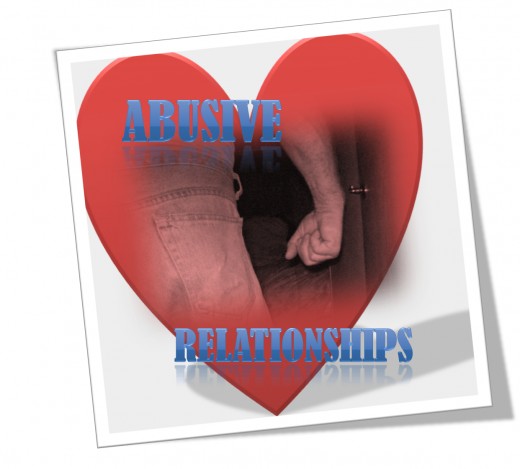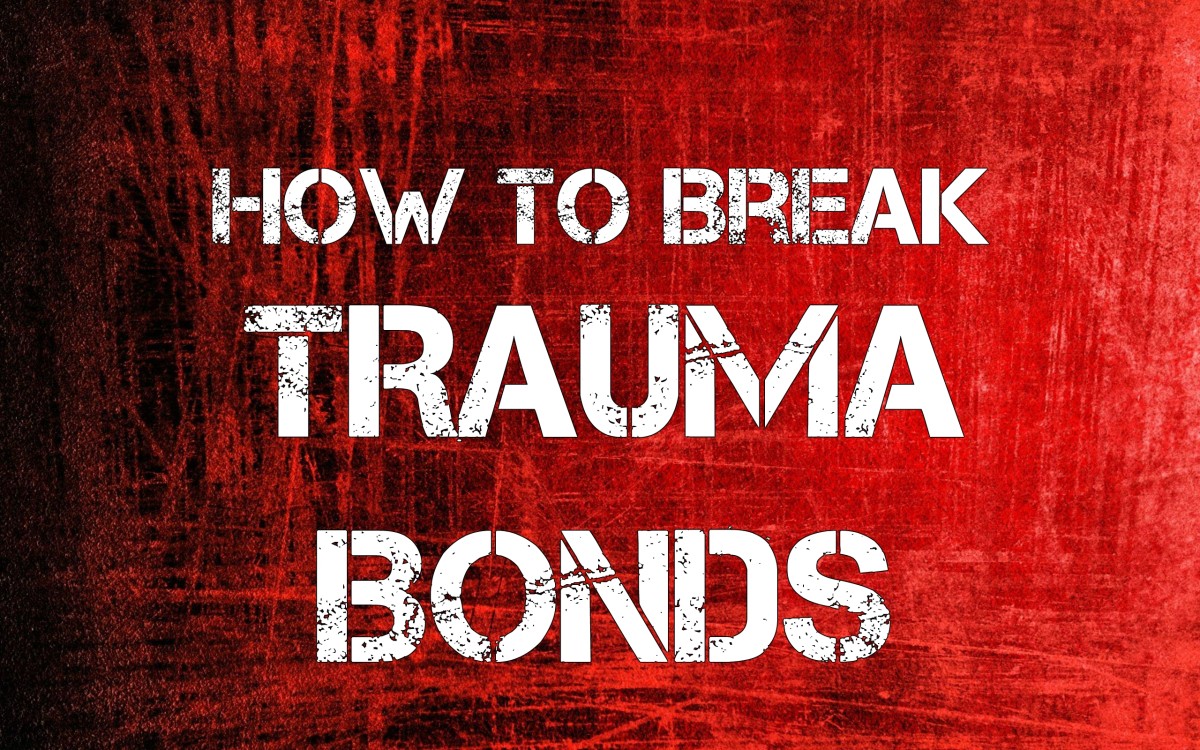How to Stay Out of Abusive Relationships

Often, people blame themselves for being in a relationship that may eventually result in abuse and even violent behavior. The truth is that many people where never taught by their parents or parental figures the possible signs and symptoms of a potentially abusive relationship. In fact, many uninformed parents will behave towards their children in ways that blur boundaries and lower self-esteem. In addition, people that find good sexual chemistry in another may not feel important enough to delay intimacy long enough to earn trust and explore more valuable perceptions and emotions. When these behaviors are enacted repeatedly, people may find themselves in serial abusive relationships. Observe the signs and symptoms of a potentially abusive relationship and promote a healthy and strong love affair in your life.
Relationships Deserve Your Time to Develop and Foster Trust
When you are involved in a new relationship, take time to get to know the person and evaluate their kindness, values, and explore their belief system. Obviously, if you are a religious or spiritual person, you will have less in common with a person who is an atheist, or vice a versa. Certainly enjoy the feelings of love but do not get lost in the intoxicating effects; understand how you are feeling and stay alert that this person is new to you and still needs to prove their trustworthiness as you allow them to enter your personal life. As in all new experiences, it is important to stay as objective as possible before engaging in a relationship with confidence.
Love is a Drug and Effects the Brain in the Exact Manner
The effects of the sensation of being “in-love” is a chemical release of “feel good” chemicals called endorphins that flood the brain with neurotransmitters associated with cocaine and the reward center. Some researchers feel that these chemicals have been developed by nature to promote procreation in humans and provide the survival of the species. Remember that you are an intelligent person that makes decisions with the “practical” side of your brain as well, and tell Mother Nature not to lead you into a world-wind romance you may regret later.
Characteristics and Behaviors of Potentially Abusive Partners
Certain violations of trust and respect are indicative of an impending problematic relationship. People that cross boundaries and exhibit certain behaviors may be dropping hints that they are not ready or capable of an honest and successful relationship. Unfortunately, a prospective partner that practices so called “teasing” and “playful name-calling” can be providing you of a glimpse of an abusive relationship development in the near future. Similar suspect behaviors may include:
- Searching your cell phone or email without your permission
- Excessive condescending remarks about you in public and in private
- Excessive jealousy, possessiveness, or signs of insecurity
- Hair-trigger explosive temper
- Doesn't like your friends or family members, and doesn't respect the fact that you love or care for your loved ones
- Frequent inaccurate accusations of infidelity or your “secret desires”
- Wide negative mood swings alternating with positive affirmations of love for you.
- Being overly possessive and attempts to isolate your from family and friends
- Any physical or verbal threat, actual physical force, or verbally demeaning act against you or your family or friends
- Attempts at taking over your life and dictating your behavior, career, financial resources or restricting you from activities or locations
- You may catch this person in little lies at first that may become more serious later on
- They use alcohol or drugs on a regular basis
Signs and Symptoms of an Abusive Relationship
Characteristics to Observe
| Possible Reasons for Behavoirs
| Negative Aspects of Behavior
|
|---|---|---|
Searching your email or cellphone history withouth permission
| Mistrustful and a lack of respect
| May be an attempt at controlling your behavior or an act of jealousy
|
Attempts at isolating you and removing you from your friends
| An act of possessiveness and control
| Shows a lack of tolerance and low self-esteem
|
Speaks harshly about past loves
| Anger and hateful towards people that have failed to live up to their expectations
| Shows a person who feels entitled and a lack of consideration for others
|
Puts you down in front of family and friends
| An attempt to lower your self-esteem and make you more vulnerable to their wishes
| Emotional abuse worsens and may become domestic violence overtime
|
You may catch this person in little lies here and there
| Small lies may become more serious overtime and reveal an unfaithful partner
| A partner who lies may be attempting to live a double life
|
The person uses drugs or alcohol on a regular basis
| Frequently, people that use mind altering substances are emotionally impaired or inapt at handling the pressures of relationships
| Substance abuse may be masking internal conflicts and hiding insecurity
|
Should I do a Background Check?
People often wonder if they should get a professional check on their prospective partners, and this is an easy “yes” in most cases (especially if you have children). However, it is very difficult to get complete information from an online background check without a social security number or other pertinent information on this individual. In addition, online background databases may be limited, and the information you receive may be invalid or incomplete. Do not feel safe if the background check doesn't reveal anything on this person, it could be wrong. If you do find distressing information, it is important to follow up with a professional investigator to be sure you have the entire story.
Examine Their Past Relationships
As medical professionals know, often the diagnosis of a disease or condition can be made by merely taking a history. Relationships are no different, and if a prospective partner reveals a violent or unsavory rendition of an imperfect mate from relationships past, he may be providing you with a window of future events. If this new person in your life uses harsh or hateful language in describing past life partners, family or friends, the chances are this person believes they are entitled to expect much and compromise little in a relationship. A negative attitude towards men, women, and family members may provide you an insight into the mind of a unsuitable future partner.
Healthy People Attract Healthy People
If you truly feel that you lack the understanding of what a healthy relationship needs to thrive, it is important that you learn the components of a valuable partnership to feel safe and confident as a partner. As children, many people are subject to uninformed parents that do not arm their children with healthy boundaries, confidence, or the instructions of how to recognize respect and demand consideration. Parents that use physical punishment on their children teach them how to solve problems with violence, and that being “hit” or “hitting” others in times of stressful confrontation is not only acceptable but normal. The use of verbally demeaning language in the household is devastating to the psyche of a young child. These negative affirmations may stay with a child from the cradle to the grave, and only after years of seeking a healthy self-image have overcome the damage to their esteem.








